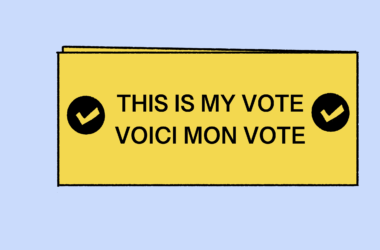
This fall’s referendum features two questions which are almost identically worded; one regarding the McGill chapter of the Quebec Public Interest Research Group, and one about CKUT, a radio station run by McGill students. Both questions call for the renewal of the groups’ opt-outable fees, but both also demand a change in the way students opt out of these fees.
The questions bundle together two vaguely related issues: the funding of a campus group and the way in which opt-outs are conducted. In an article published in the Tribune last week, (“Referendum period opens with ballot on CKUT and QPIRG,” Nov. 1, 2011), Anna Malla, QPIRG’s internal director, argued that “[QPIRG’s] very existence is at stake with the current system.” She said that QPIRG spends too much time and energy defending itself during the opt-out period, and that the group aims to reform this process now. Caitlin Manicom, CKUT’s funding and outreach co-ordinator, cited similar concerns.
These referendum questions are manipulative, irresponsible, and represent an attempt to separate opt outs from the fee payment system—and that’s the main reason I will be voting no. While I disagree with some of their political views and the mandates of some of their working groups, I am not against their right to exist in an opt-out system where students are fully informed. However, should these referendum questions pass, they will take the opt-out system in entirely the opposite direction.
Under the current system, students can log into Minerva, navigate a series of menus, and click a button to opt out of all of the fees they wish. Logically, students should be able to opt out of fees in the same place they originally pay them. This system causes some issues for less controversial groups, as students begin to “blanket opt-out,” when they learn of this freedom. However, many students don’t know about the opt-out system; I didn’t until my sixth semester at McGill. The referendum questions attempt to marginalize students by further obscuring this already confusing process. A better system would require students to make informed decisions about where their money is going, but not inconvenience them in the process. There is no clear avenue for informing students about the in-person opt-out system. Furthermore, many students may be intimidated by having to visit the groups’ offices. Requiring that students take 20 minutes instead of two, and walk up the hill is a subtle attempt by QPIRG and CKUT to create a new, more subjugating opt-out system.
QPIRG cites the drain on human resources as one of the reasons it can no longer weather the current opt-out system. Yet changing the opt-out system won’t end the QPIRG opt-out campaign. Additionally, it will only increase the amount of work QPIRG has to do during the opt-out period. In addition to defending their fee, QPIRG will also have to keep track of thousands of students opting out, and staff the opt-out stations they have advertised.
With all of today’s modern conveniences, taking opt-outs offline is a step backwards. This is the 21st century, students should be able to opt out of a student fee online at the same place they originally spent their money—Minerva. If QPIRG and CKUT are suffering so dramatically from opt-outs, perhaps it’s time to increase the fees. Based on data from last week’s Tribune article and McGill enrollment figures, a 75 cent fee increase would allow both groups to receive about as much money as if no students opted out of the current fee. Or perhaps the groups should cut back spending on certain things.
It is unfortunate that QPIRG and CKUT have posed what should be routine fee renewals in such a manipulative way. By doing this, both groups jeopardize their very existence. The last QPIRG fee renewal passed by only 1.9 per cent, which suggests that resistance to QPIRG is much stronger than opt-out numbers might indicate.
While I support some of QPIRG’s activities, and disagree with others, I entirely disagree with their proposed changes to the opt-out system, and that’s why I’m voting no. I encourage all students to inform themselves about QPIRG, and about what a change in the opt-out system would mean.








